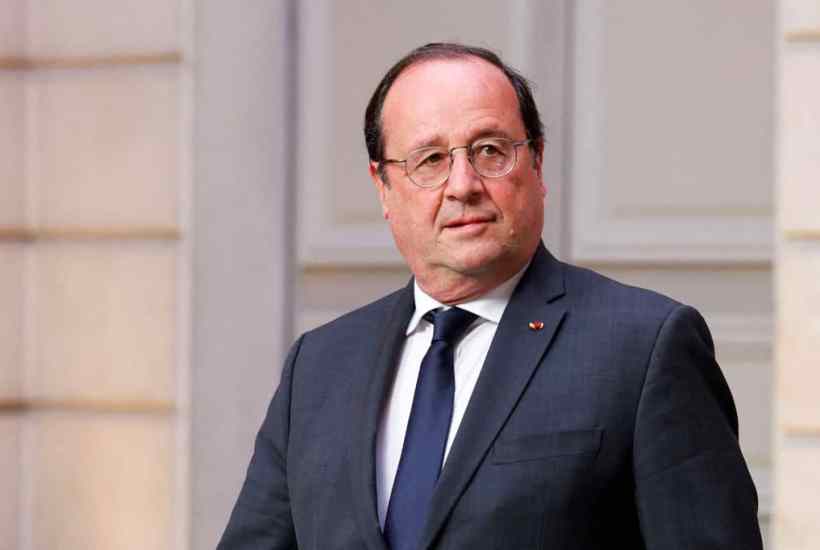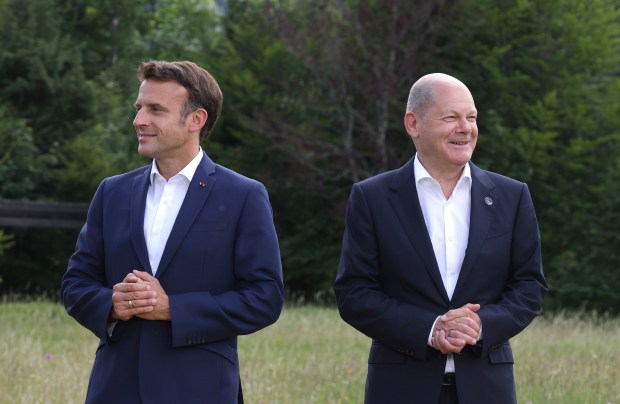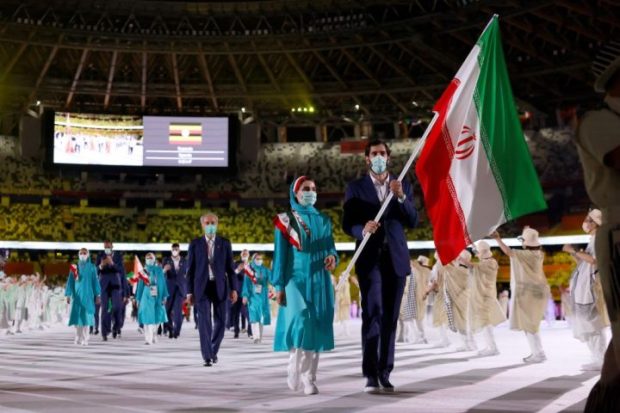One of the more significant results from the first round of the French parliamentary elections on Sunday was in the Corrèze. There, in the rural south of the country, Sandrine Deveaud of the Nouvelle union populaire écologiste et sociale (Nupes) came top with 25.4 per cent of the vote. This is the left-wing alliance assembled by Jean-Luc Melenchon in the wake of April’s presidential election result, bringing together his far-left France insoumise, the Greens, the Communists and the Socialist party. The Socialists were the last to come on board. And even then many within the party refused to submit to Melenchon and declared they would stand against Nupes’ candidates in the parliamentary election.
Annick Taysse did just that in the Corrèze, and she received the enthusiastic endorsement of François Hollande. What a boon, she must have thought, to get the backing of the former Socialist president and the man who built his political career in the region, where for 20 years he was the MP.
Fat lot of good it did Taysse. She didn’t even hit double figures when the votes were counted, and next Sunday Deveaud will go head to head against the centre-right Republicans Francis Dubois to see who will represent the region in the National Assembly.
The result was a humiliation, not just for Taysse, but also for Hollande, who, if the rumours are to be believed, is contemplating a political comeback at the age of 67. He married his long-term paramour last week, Julie Gayet, perhaps to add an air of respectability ahead of an announcement that he does indeed have his eye on becoming president in 2027.
Hollande never did have much political nous; he demonstrated that during his five years as president between 2012 and 2017. It was such a disastrous tenure that he didn’t even stand for re-election. But is he really so stupid as to think he can resurrect the Socialists as a party completely independent of the Nupes?
Apparently so, just as a couple of his government ministers from his time in power, Christiane Taubira and Arnaud Montebourg were similarly deluded in believing that they still appealed to the electorate. Both their comebacks ended in humiliating failure.
Hollande, Taubira, Montebourg all bear a heavy responsibility for the emergence of the Nupes, a list that also includes Martine Aubry, Ségolène Royal and Anne Hidalgo, who as Socialist candidate in the recent presidential election, mustered just 1.5 per cent of the vote. They hail from the arrogant, self-satisfied ‘Soixante-Huitard’ generation which has dominated the Socialist party over the last thirty years and reduced it to its present pitiful state.
I did try and warn them, here on Coffee House in 2019, when I explored the plight of the Socialists, and concluded that they were doomed because ‘that is what happens when middle-class politicians alienate their traditional working-class voters’.
The Socialists’ greatest failing this century has been their intolerance. Dissenters were not welcome, particularly over the party’s position on Europe, which was why Jean-Luc Melenchon quit the Socialists in 2008. He could not reconcile himself to the party’s Europhilia given that he knew the majority of left-wing voters had voted against the EU Constitution in a 2005 referendum.
Melenchon has all the political nous that Hollande lacks, and he also possesses an authenticity that none of the Socialist grandees have. The secret of his electoral success is that his rhetoric strikes a chord with the impoverished working-class – whatever their ethnicity – and the idealist young middle-class who worry about the environment. He’s often been compared to Jeremy Corbyn but Melenchon has that crucial quality that the former Labour lacked: charisma.
The pair share a similar economic ideology and among the campaign pledges of Melenchon’s Nupes are a promise to reduce the retirement age to 60, increasing civil servants wages (and create more jobs in the sector), hike up the minimum monthly wage by 15 per cent to €1,500 (£1,280) and reimpose the wealth tax scrapped by Macron. Most, controversially, and the reason why many Socialists rejected the coalition with the Nupes, Melenchon would refuse to comply with those parts of EU law he didn’t view in the best interests of France.
For Hollande, any form of opposition to the EU is sacrilege. But that may explain why he is all washed up at 67 and Melenchon, three years his senior, is riding the crest of a new left-wing wave.
Got something to add? Join the discussion and comment below.
Get 10 issues for just $10
Subscribe to The Spectator Australia today for the next 10 magazine issues, plus full online access, for just $10.





















Comments
Don't miss out
Join the conversation with other Spectator Australia readers. Subscribe to leave a comment.
SUBSCRIBEAlready a subscriber? Log in